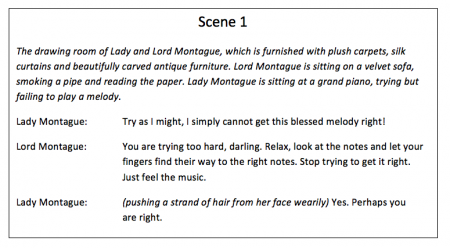
To that end, I have also provided the raw text from Lysistrata on the site, so that potential directors who wish to can make that decision for themselves. Iphigenia in Aulis, Untitled Theater Company #61. And with my modern sensibilities/ tendencies to find a character arc, I have used that ambivalence to my advantage when adapting. Sometimes those decisions are a bit obvious, but other times it is hard to judge original intent. Similarly, in ancient Greek texts, there are no characters, and part of the process of translation is assigning lines to characters.

When I directed, I was the one who distributed and allotted the lines among the actors. I have directed Foreman’s texts on multiple occasions, and one of the most fascinating aspects of that process is the fact that Foreman writes just lines of dialogue, not characters. I find the connection to Foreman’s work particularly relevant. He asks no royalties, but he does request that if the material is used for a performanace that he be notified and credited. He threw open his notebooks, the raw material from which he creates he plays, and invited the public to create their own plays from it. Richard Foreman did something similar on his website.

However, if they use his work more or less as written, he requests royalties. All his texts are on his website, the (re)making project, and he invites writers to use the work at will in creating their own theatrical collages. The first playwright I am aware of to conduct a similar experiment with the text of his plays is Chuck Mee, who put his plays online almost twenty years ago.
#Free play scripts online for free#
As an independent theatre maker in New York, I have enjoyed watching and occasionally creating this style of work, and indeed the idea of putting plays on the net for free comes partly from that tradition. I allow collages as an acknowledgment of how modern work is often created, combining two or more disparate elements, such as text and image, into a new artwork. Also, readings can be conducted free of royalties, and those who wish to use pieces of the work as part of a theatrical collage are free to do so, as long as I am credited. Mainly it is there for those interested either for academic reasons or as support to those producing the play. In the more altruistic vein, the additional material on each site provides no real personal value, except perhaps to drive a little more traffic. And, just as importantly, the intellectual property of an unread script has much less economic potential than that of possible future productions-I should mention, in this context, that I will continue to charge royalties to those who choose to stage the scripts. In essence, I am saying the artistic satisfaction of having one’s work read and produced is much greater than having it lay hidden. But my main goal is to inspire productions. In this particular case, what result am I hoping for? I do like the idea of providing well-written (I hope) modern translations for free to those studying or simply interested in the plays. The broader experiment, of course, is what happens when you provide intellectual property online for free. I do like the idea of providing well-written (I hope) modern translations for free to those studying or simply interested in the plays. Still, I have no idea what the result of my version of this experiment will be. What am I waiting for? In essence, the results of an experiment, or rather a permutation of an experiment that pretty much co-evolved with the Internet.

#Free play scripts online full#
I put the full text of both plays on each website, and some supporting materials-essays, info about the original productions, etc. PayPal donations can be made via the link in the left column.Recently, I created two new websites, one for each of my two translations/adaptations of Greek plays, Lysistrata and Iphigenia in Aulis. theatre-should align with your audience’s preference” ( Grammarly). In American English, the spelling is theater in Britain and the rest of the English-speaking world, theatre is used. “Whether you use the spelling theatre or theater will depend on where you hail from.

Instead, they follow the script intently, waiting for their parts to read with great fluency and expression. Therefore, students do not memorize their lines. Reader’s theater encourages students to practice fluency. VectorStock Image Reader’s Theater Free Scripts Reader’s Theater helps students develop fluency skills.įluency is the ability to read with proper rate, accuracy, and expression.


 0 kommentar(er)
0 kommentar(er)
